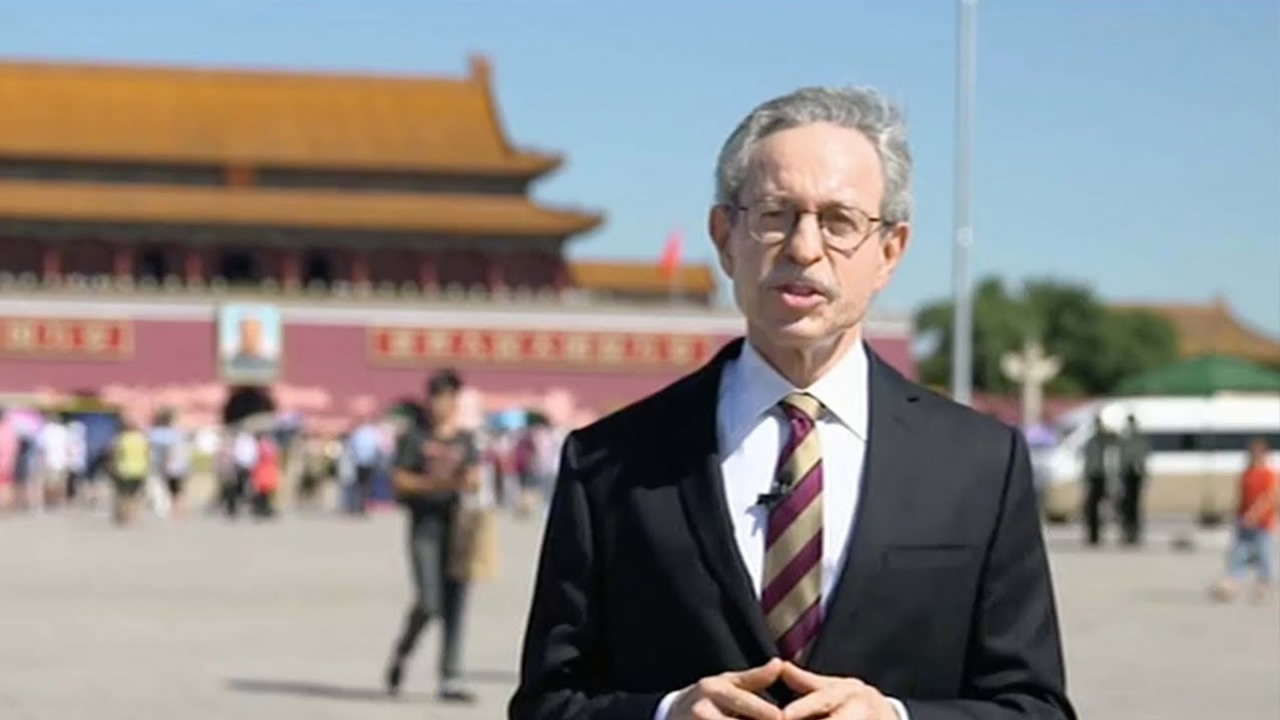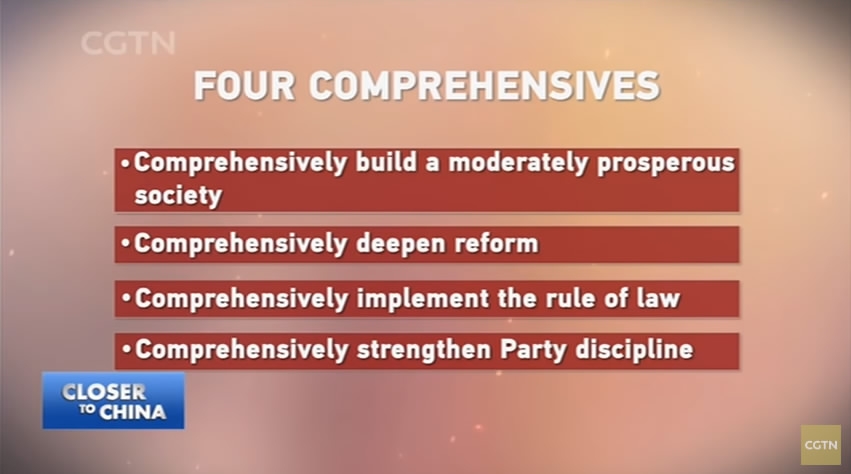
Politics
18:07, 02-Oct-2017
Closer to China: Xi’s Political Thought
CGTN

President Xi Jinping’s political thought will be in focus at the 19th National Congress of the Communist Party of China (CPC).
China aims to build a moderately prosperous society in all respects by 2020, but challenges and risks abound: social imbalances, massive pollution, vested interest groups, and global volatility.
President Xi has put forward several major political formulations or frameworks since the 18th CPC National Congress in 2012: the four comprehensives, which guide China’s overall governance; and the five major development concepts, which direct economic growth.

CGTN Photo
CGTN Photo
These guidelines for governance form the current leadership’s blueprint for China’s future.
Closer to China with R.L. Kuhn spoke to Party insiders to discover more about the new concepts, thoughts and strategies that underline, motivate and drive Xi’s political thought.
What motivates Xi’s political thought?
The basis of Xi’s political philosophy is that it is people-orientated and geared towards achieving the Chinese dream.
Li Junru, former vice president of the Party school of the CPC Central Committee, told Closer to China: “President Xi Jinping’s governing practice has a people-orientated core which guides all his decisions. Fundamentally speaking, President’s Xi’s goal is the people’s pursuit of a happy life.
“He then expands his thought from focusing on the result, to the process towards that result. One typical example is the people-orientated five major development concepts: innovative, coordinated, eco-friendly, open, and shared development.”
Han Qingxiang, a member of the administration committee of the Party School of the CPC Central Committee, added: “President Xi’s new concepts, ideas, and strategies on governance, have formed an integrated and logical system. The first aspect of the system is the people-orientated governing philosophy. The second is the fundamental theme of governance, which is to adhere to and develop socialism with Chinese characteristics.”
What’s unique about the four comprehensives?
Deepening reform, advancing the law-based governance of China, and strengthening Party self-discipline have all been implemented since the 18th CPC National Congress with the aim of building a moderately prosperous society.
The four comprehensives aren’t individually original ideas, so what is it about bringing them together that makes them a suitable mechanism to tackle today’s challenges?
Li Junru noted that Xi has previously stated that building a moderately prosperous society is the goal of the four comprehensives, while deepening reform, promoting rule of law and strengthening Party discipline are strategic measures than follow and serve that goal.
Li stressed the importance of “coordinated development”, warning that without coordination “there would be conflicts that could weaken the desired results, and prevent the four from merging into a holistic system.”
Chinese leaders and political thought
“Xi Jinping: The Governance of China”, containing Xi’s speeches and insights into his thinking about governance, was released in late 2014. More than six million copies have now been distributed around the world.
Each of the generations of leadership of the People’s Republic of China (PRC) has released similar works, but similar traditions are rarely seen in other countries. What is it about China that calls on the top political leader to also be the leading political philosopher?
Zhu Lingjun, deputy director of the Party Building Department of the Party School of the CPC Central Committee, said: “I think the so-called innovation of thoughts is actually determined by the leading party’s identity.
"Our leaders today have three roles, as political leader, organization leader, and thought leader. This is different from the Western practice. For Western parties, their identity is simple: either ruling or opposition party.”
Will 19th National Congress be different?
The CPC National Congress traditionally sets the agenda, the policies and the leadership for the next five years.
China has set two overarching goals, also known as the two centenaries: a moderately prosperous society by 2020, roughly 100 years after the CPC was established, and a fully modernized socialist nation by 2050, roughly 100 years after the PRC was founded.
The former will fall within the next five years, so does that make the 19th CPC National Congress a little different?
“Actually, the plan of every CPC National Congress for the future development of the Party and China is not limited to the five-year period,” explained Zhu Lingjun.
“The 19th CPC National Congress is different from previous ones as we are in a new historical stage. Although we are still in the primary stage of socialism with Chinese characteristics, it is a new situation. We can say it is a key historical period.
"Why do I say so? According to the report of the Party Central Committee, it is a critical stage in building a moderately prosperous society in a comprehensive way, and it’s also a key period in building socialism with Chinese characteristics.
“After realizing the first centenary goal, according to the assumption by Mr. Deng Xiaoping, a relatively mature and stable system should have been built by the centenary anniversary of the CPC. After accomplishing this mission, we will focus our efforts on the second centenary goal. Hence I think the 19th CPC National Congress will have a blueprint for the second goal.”

SITEMAP
Copyright © 2018 CGTN. Beijing ICP prepared NO.16065310-3
Copyright © 2018 CGTN. Beijing ICP prepared NO.16065310-3